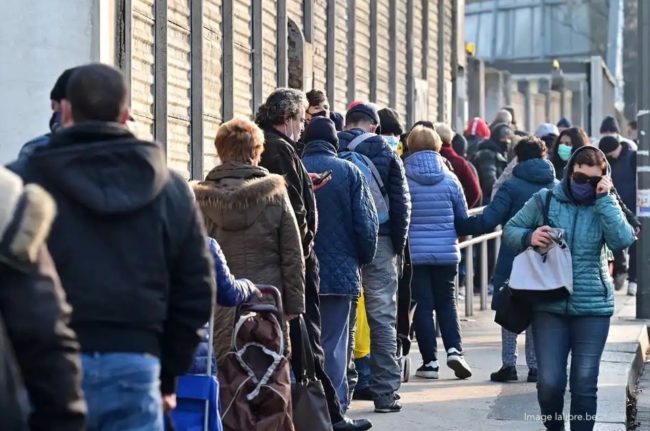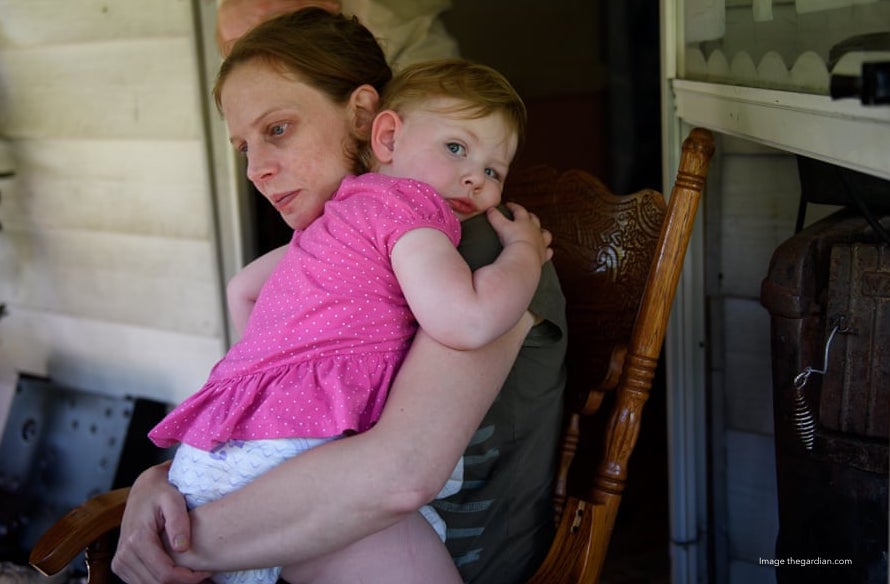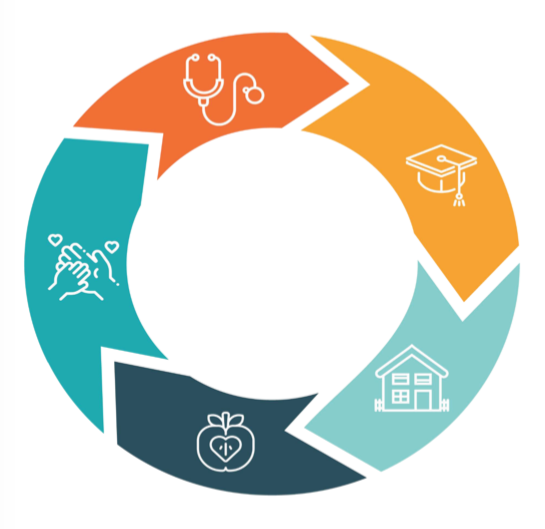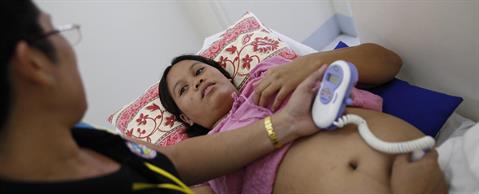UN Special Rapporteur on extreme poverty and human rights says “good intentions are not enough.”
05.03.21
Make Mothers Matter welcomes the statement recently made by Olivier De Schutter, UN Special Rapporteur on extreme poverty and human rights [1] .

The statement was made following a two-month fact-finding official mission to the EU, to examine the impact of European Union policies on the eradication of poverty. This end of mission statement released on 29 January 2021 not only provides an extensive and thorough analysis of the situation in the EU, but also puts forward mechanisms and strategies to address existing problems in combatting poverty.
The proposals echo the demands and common concerns presented by MMM and other members of the Social Platform during a roundtable exchange with Mr De Schutter. On this occasion different organizations presented their inputs on the challenges and opportunities within the European Pillar of Social Rights (Social Pillar) Action Plan, the social dimension of the European Green Deal, the European Semester process and the budget for recovery as well as the Social Scoreboard.
The exchange gave us an opportunity to present the specific challenges and opportunities for mothers and their families.
UNPAID CARE WORK
We addressed the need to redefine “work” as a holistic concept, combining both paid and unpaid work. Unpaid care work is an indispensable support to the world economy and gender equality will never be achieved until this essential unpaid care work is recognised, reduced, and redistributed.[2]
We informed the rapporteur that about 80% of the time spent caring for children, people with a disability or for the elderly is provided by informal carers: family, friends, or neighbours. But that this duty mostly falls on women. Moreover, current pension systems cumulate inequalities that occur over a person’s lifetime.
SINGLE MOTHERS
MMM reported that women are more at risk of poverty and social exclusion than men (22.8  % of women compared to 20, 8 of men 2018)[3] and single mothers are particularly vulnerable. As the Special Rapporteur states, “these poverty figures, however, hide the faces of the people behind them: lone mothers for whom juggling care and work responsibilities is virtually impossible…” In fact, “Women are also disproportionately represented among lone-parent families (85%), 40.3% of which have children and are at risk of poverty or social exclusion“.[4]
% of women compared to 20, 8 of men 2018)[3] and single mothers are particularly vulnerable. As the Special Rapporteur states, “these poverty figures, however, hide the faces of the people behind them: lone mothers for whom juggling care and work responsibilities is virtually impossible…” In fact, “Women are also disproportionately represented among lone-parent families (85%), 40.3% of which have children and are at risk of poverty or social exclusion“.[4]
MMM pointed out the existing high level of homelessness among mothers and their families. Women face an increased risk of homelessness and/or have more difficulties in accessing housing, for themselves and their families. This is due to expensive private-sector rents, difficult to access affordable housing (increasingly scarce in many cities), discrimination and higher risk of eviction.
Some of these risks have been exacerbated due to the pandemic, and single parent families are more at risk than ever before.[5] Many countries, such as Belgium and Finland, consider that the current COVID-19 crisis is hitting single mothers and their children hardest.
As many studies demonstrate, countries that combine universal policies and policy measures targeting single parents show lower poverty rates among single parents.[6] MMM therefore calls on universal measures and policy tailored specifically to single parents. These include child support (and guaranteed advances) and financial supplements to child benefits that are targeted to single parents in poverty. We also call for adequate, accessible, and enabling Minimum Income schemes that have an essential role to play as an ultimate safety net.
We agree with the Rapporteur that poverty will not be ended with employment policies alone, but indeed with strong redistributive measures.
THE EUROPEAN CHILD GUARANTEE
 With regards to the Child Guarantee, Make Mothers Matter has been calling for the inclusion of family support. As Olivier De Schutter rightly states, “support to children cannot be disassociated from support to parents’ access to employment and to a decent standard of living… Improving the situation of children depends on improving the situation of their family“.[7]
With regards to the Child Guarantee, Make Mothers Matter has been calling for the inclusion of family support. As Olivier De Schutter rightly states, “support to children cannot be disassociated from support to parents’ access to employment and to a decent standard of living… Improving the situation of children depends on improving the situation of their family“.[7]
HEALTH CARE
Make Mothers Matter calls for the need to guarantee access to affordable and quality health care for all. This includes access to quality maternal health care during pregnancy and after childbirth. This right to health is built on the fundamental elements of availability, accessibility, acceptability and of high quality.
Despite all the legal instruments, policies and practices persist to discriminate against women or undermine their ability to make decisions relating to their own health or limit their access to quality health care and information.
Significant disparities exist among the member states, which can be attributed to various factors, with one of the main factors being the unequal access to maternal health care. Most maternal deaths are preventable if births are attended by skilled health care professionals who are properly educated, with access to proper equipment, or if pregnant women are granted regular access to maternal health care.
 We informed the Rapporteur that throughout the European region, perinatal mortality rates vary by social and ethnic group, with migrants tending to be the most disadvantaged group. And that disrespectful practices at health care facilities threatening maternal health and basic human rights are reported on a daily basis.
We informed the Rapporteur that throughout the European region, perinatal mortality rates vary by social and ethnic group, with migrants tending to be the most disadvantaged group. And that disrespectful practices at health care facilities threatening maternal health and basic human rights are reported on a daily basis.
The UN Special Rapporteur will present his final report at the 47th session of the UN Human Rights Council in June 2021.
[1] https://www.ohchr.org/EN/NewsEvents/Pages/DisplayNews.aspx?NewsID=26693&LangID=E
[2] See MMM answer to the public consultation on the European Pillar of Social Rights https://makemothersmatter.org/mmm-responds-to-eu-commissions-public-consultation/
[3] https://ec.europa.eu/eurostat/web/products-eurostat-news/-/EDN-20191017-1?inheritRedirect=true&redirect=%2Feurostat%2F
[4] Ibid. p.2
[5] “The impact of COVID-19 on people experiencing poverty and vulnerability”, 2020, p.48, European anti-poverty Network
[6] Directorate-General for Employment, Social Affairs, and Inclusion, Peer Review on “Single mothers facing poverty: Providing adequate financial, material and social support for sustainable social integration”, https://www.researchgate.net/publication/322303143_Belgium, 5 & 6 October 2017.
[7] Ibid.p.14
Breaking the Cycle: Gender Equality as a Path to Better Mental Health
18.03.25
The Council of the European Union has taken a decisive step in recognising the vital connection between gender equality and mental health.
Europe Must Listen to Mothers: Our landmark report heads to the European Parliament
28.08.25
On 22 September 2025, the voices of mothers will take centre stage in Brussels. For the first time, Make Mothers Matter (MMM) will present its State of Motherhood in Europe
Belgian Mothers Face Alarming Rates of Burnout and Perinatal Depression, New EU Survey Finds
03.07.25
Belgian mothers are facing a mental health crisis. According to the State of Motherhood in Europe 2024 survey by Make Mothers Matter (MMM) and Kantar, Belgium reports the highest rates








